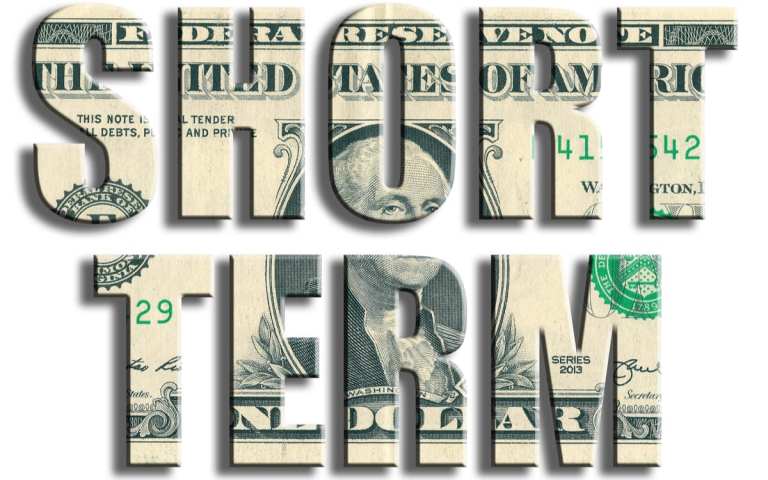Short-Term Lending Shows Promise As Lifeline For Paycheck-To-Paycheck Consumer

As the pandemic lingers and as individuals and families endure cash crunches and job losses, the exposure to unplanned expenses can reach critical levels. As PYMNTS research has found, roughly 60 percent of Americans live paycheck to paycheck. And statistics from the Federal Reserve show that even before the coronavirus devasted household finances, that on average, 40 percent of Americans have less than $400 on hand to cover emergencies.
For these consumers, short-term lending may be a lifeline. As Travis Holoway, co-founder and CEO of SoLo Funds, told PYMNTS, Americans grappling with cash shortages and in need of funds to cover life’s basic necessities could benefit from a mobile peer-to-peer marketplace can help build long-term creditworthiness.
The solution is viable because of the relatively small amount this consumer segment may need to borrow. The small-dollar space, Holoway said, has up till now had limited options for would-be borrowers, confined to friends and family (which can be stressful on personal relationships) or predatory lenders who can charge hundreds of percentage points in annual interest rates. Lenders have relied on traditional methods for underwriting and sources of capital, said Holoway — resulting in friction throughout the process. Those burdens, he said, “have resulted in credit market restrictions and increased costs of capital for lending companies.”
At a high level, and to address those pain points, SoLo’s lending exchange creates an online community where members can request and receive short-term loans.
The company has said that since its 2018 launch, it has processed more than 100,000 loans across 300,000 users. Beyond FICO, he said, and beyond short-term lending models, a better predictor of creditworthiness even during times of job insecurity, he said, has been cash flow. For example, the individual who gets laid off from a full-time position at Macy’s, who delivers for Postmates on the side, or can leverage talents and skills to design and sell custom coffee mugs on Etsy, he said, may have cash flow enough to take on and satisfy small-dollar borrowings. The lack of a dedicated, biweekly paycheck — which would preclude traditional payday lenders, who collateralize, a portion of a borrowers’ upcoming pay cycle or even some digital-first online lenders — need not shut people out of the credit markets.
SoLo, he said, seeks to offer an online platform that brings together lenders — people who want to have a positive impact (Holoway said they want to “do well while doing good”) — with people who want short-term loans, where the average loan size is $200 and duration averages 15 days.
The quick duration of those loans, he said, allows lenders to see returns faster and then redeploy capital back to other borrowers — sometimes several times in a month.
“Individuals with as little as $50 can deploy capital to someone else,” said Holoway.
The on-demand capital nature of the model, he said works as borrowers sign on and create profiles. They request an amount and the terms they’d like on the loans — including payback date and reason for the loan (for example, to cover food or rent). The lenders can browse loan requests, select loans to fund and channel the money across the platform.
There are no minimum dollar requirements for the loans, Holoway told PYMNTS, and transparency is high because borrowers and lenders connect directly, with only the platform as the “middleman.” Borrowers and lenders undergo AML and KYC checks when they provide bank account info, said Holoway.
The company also offers up a “Solo Score” that is a transaction by transaction reading of how confident a lender may be of repayment ability based on borrowers’ cash flows.
“We’re looking at an individual’s ability to repay a loan on a specified date and time. So if a borrower is requesting a loan and they have a repayment date of the 20th, we’re looking at how frequently do they get paid? When do major bills come out, what are their overall spending habits? What’s the average daily balance of their account?”
Additional data points include behavioral data, location-based data and social media data to help SoLo better assess an individual’s creditworthiness, said Holoway.
Funding Round
SoLo has raised $10 million in a Series A funding round from a consortium of investors led by ACME Capital. Holoway said the funding would be used to build and scale its team and grow brand awareness.
“We believe that the data that we have is incredibly valuable to our users from the standpoint of providing a path to upper financial mobility for them,” as they move through life and, for instance, look to get credit cards or large loans (auto loans, for example) with more favorable interest rates as they are able to demonstrate their creditworthiness.
“Because the loans are so short term, we’re obtaining data so quickly that it allows us to essentially update our model and be able to learn about loan performance significantly faster than traditional lending companies that may not know full loan performance for 12, 24 or 36 months,” said Holoway. He said that there is a 30 percent “overlap” for individuals who are both borrower and lender on the platform.
“Borrowers get through that rough patch, but ultimately they return as a lender or evolve into a lender and pay that forward,” he told PYMNTS.